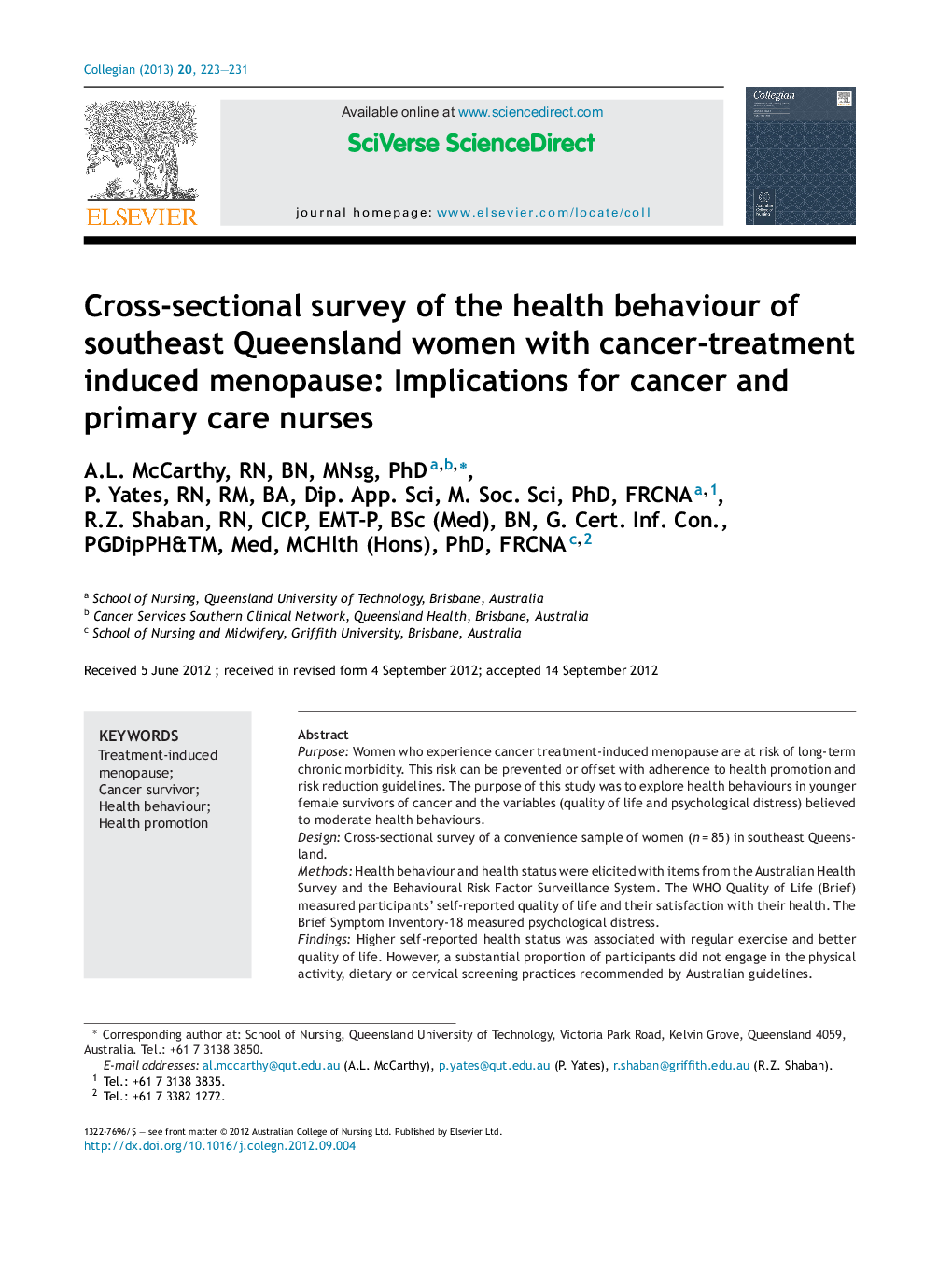| Article ID | Journal | Published Year | Pages | File Type |
|---|---|---|---|---|
| 2646380 | Collegian | 2013 | 9 Pages |
PurposeWomen who experience cancer treatment-induced menopause are at risk of long-term chronic morbidity. This risk can be prevented or offset with adherence to health promotion and risk reduction guidelines. The purpose of this study was to explore health behaviours in younger female survivors of cancer and the variables (quality of life and psychological distress) believed to moderate health behaviours.DesignCross-sectional survey of a convenience sample of women (n = 85) in southeast Queensland.MethodsHealth behaviour and health status were elicited with items from the Australian Health Survey and the Behavioural Risk Factor Surveillance System. The WHO Quality of Life (Brief) measured participants’ self-reported quality of life and their satisfaction with their health. The Brief Symptom Inventory-18 measured psychological distress.FindingsHigher self-reported health status was associated with regular exercise and better quality of life. However, a substantial proportion of participants did not engage in the physical activity, dietary or cervical screening practices recommended by Australian guidelines.ConclusionsThe participants require education regarding the benefits of diet, exercise, weight loss and decreased alcohol intake, as well as information on future health risks and possible comorbidities. These education sessions could be addressed by a nurse-led health promotion model of care at the time of discharge or in the community.
